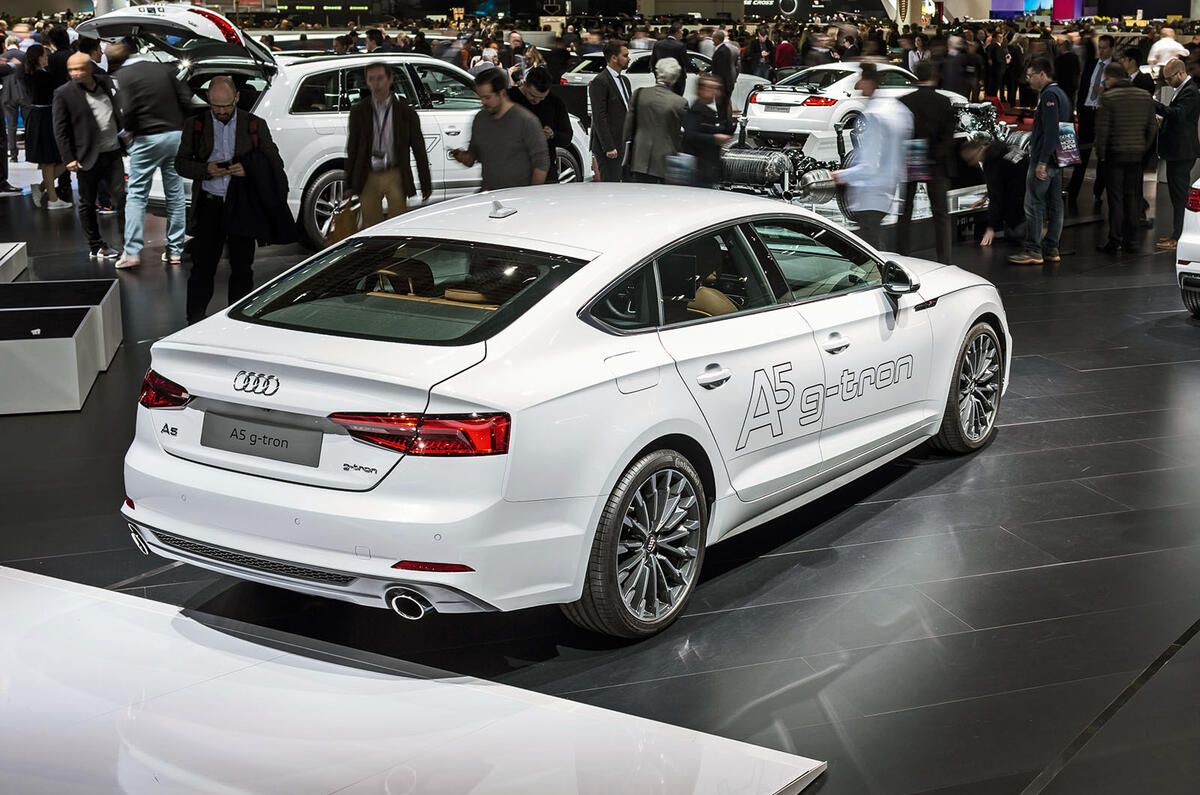With the global emphasis on reducing average CO2 emissions, it is a mystery why gas power for cars is rare in Europe — especially given that gas-powered buses are very common.
It’s ironic that the Volkswagen Group, which triggered the great diesel scandal, made the decision years ago to incorporate gas tanks into its MQB and MLB platforms.
At the Geneva show in March, Audi displayed its gas-powered MLB platform under the new Audi A5. Equipped with a 25-litre back-up petrol tank, the car is good for 100g/km of CO2. Without the petrol tank, it’d probably be an 80g/km car, close to an electric car charged off the UK grid. In fact, because gas accounts for around 40- 50% of power generation in the UK, an electric car is in effect partly gas-powered in any case.
Is it time to give up on the diesel engine?
More to the point, using natural gas massively reduces what should be the real issue: tailpipe pollutants. NOx emissions should drop by 80% and particulates by 99%.
Audi says a gas-powered A5 will cost the same as the diesel but needs far less in the way of exhaust after-treatment. Compared with an electric car, it is lighter, is much less expensive and isn’t full of complex battery technology. For the next 10-15 years, gas makes more sense and is arguably greener than battery power.





Join the debate
Add your comment
Complex?
I'll concede that it's lighter. I'm willing to bet, though, that given time, EVs will be cheaper and the reason is that the next part of the above sentence is surely wrong. I'm willing to be corrected (by evidence) but surely an EV is far less complex than any ICE car? We may be less familiar with the technology, but that's not the same.
My last two cars have been hybrids. Sorry to ignore Autocar's advice that I'd have been better off with a diesel. From my understanding of how they work, I reckon they have fewer extra parts than a diesel has over a petrol. There's an electric motor (one moving part) or two motors if it's a Toyota. No variable van turbo. No DMF. No particulate trap. A couple of years ago, Car Mechanics did a four part feature on hybrids. Coincidentally, the first issue also had a "top ten" list of mechanical problems in modern cars. Most were associated with diesels.
I see this again and again in Autocar - hybrids and EVs are "complex". Please justify it.
Compressed gas in a collision...
Unfortunately gas won't take